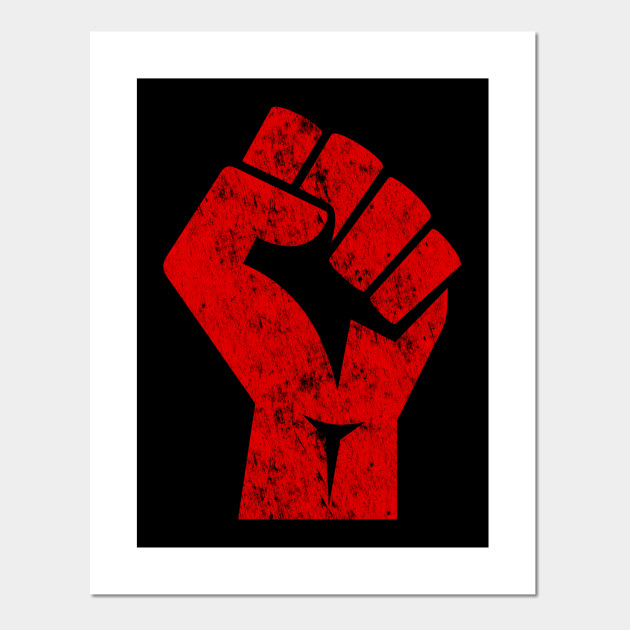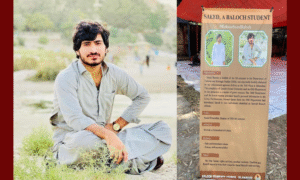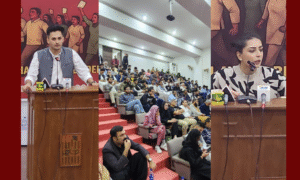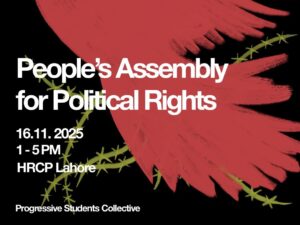“To be, or not to be: that is the question:
Whether ’tis nobler in the mind to suffer
The slings and arrows of outrageous fortune,
Or to take arms against a sea of troubles,
And by opposing end them?”
– Hamlet, Act III, Scene I
The main question confronting us amidst a global pandemic is: to resist, or not to resist?
Before we answer this question, we must first ask some basic questions about existence itself. What kind of lives are we living? Does everyone around us have equal opportunities to lead their lives as they desire? Do we have any say and stake in all those things that decide our fates?
Asking such questions can help us understand the prevailing misery exacerbated by this crisis. This socio-economic system is built upon and stands on the huge divide between the have and have-nots. There appears to be no other way of survival in this social organisation for those who own nothing, except to sell their labour. If they can’t sell themselves, they mean nothing to anyone, alive or dead.
This was exactly the case in this lockdown when millions of working class families were starving and no one was there to support them. Besides informal labour, even the formal labour was and is still being fired in great numbers from their workplaces. Those industrial tycoons who have made billions from the sweat and blood of working men and women are now not even willing to pay for a month to sustain them. What a tragedy!
The fault lines of this crisis become even more glaring in the case of doctors, nurses and paramedical staff who are at the forefront of this pandemic. In the beginning there were organised saluting ceremonies by police and paramilitary forces for health workers – an expression of our affinity for jingoism. But in the middle of the pandemic, when health workers were facing severe shortages of basic necessities as PPEs, the same officials who were saluting them earlier began to attack them with batons, and even arrested them.
Doctors in Lahore saw no other choice but to go on hunger strike. A friend who visited these hospitals and isolation wards called them “killing sites” – both for patients and health workers, where there is a severe dearth of protective equipment, medicines, staff, food and ventilators.
The logic of profit even superseded the imperatives of a pandemic, and even the education sector was not spared. First online classes were launched and then administrations began demanding huge fees for these dysfunctional online classes. Even more shameful: some universities even threatened expulsion if students did not pay the exorbitant fee.
Farming communities are also facing apathy and indifference. The purge of people’s democratic and constitutional rights still appears to be the priority of the state and dissenting voices are being silenced in peripheries of Pakistan.
Minorities have been the worst affected in this crisis. Recently, a church in Ferozwala was destroyed by an angry mob. Miseries of every section of society are hard to speak of here, but even more troubling are the priorities of this government; that in the face of all this suffering, concessions and resources have been directed towards powerful billionaires. Relief meant for labour is given as concessions to construction firms; relief meant for farmers is given to agro-industrialists; board exams are postponed but the private university mafia has been given full autonomy to deal with students as they wish to.
All this repression and indifference and the approach of government in response to this crisis tells us that it is not the people’s government in any way. The priorities of the powerful in today’s state structure are to further enrich and empower themselves; they have clearly given us the message that they really don’t care about us.
All this lead us to conclude to that resistance is inevitable. After doctors, students and workers are on strike. Anger is brewing in the masses and it is only a matter of time before it spills over to the streets. But without any political and ideological orientation, there are chances of this rage being destructive. It will be and still is the responsibility of progressive social activists to give direction and language to the misery and anger of these suffering masses. We need to intensify our efforts of social solidarity and organising the masses.
The Students’ Herald News Desk focuses on reporting the latest news regarding student politics and campus updates to you.
The News Desk can be reached at admin@thestudentsherald.com




